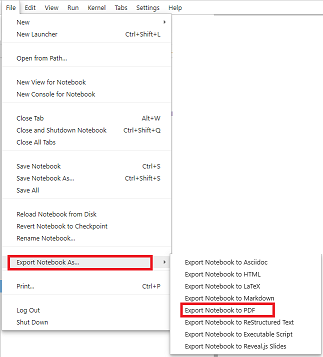
#Jupyter notebook online viewer how to#
This is so uncomfortable,So from now on, I will explain how to easily run jupyter notebook server statically.Īs you could check the result of the above command, You could identify jupyter_notebook_config.py is created within /home/USERNAM/.jupyter/ directory.Īnd then you need to chage some line of the file, jupyter_notebook_config.py to control jupyter notebook remotely.įirst, create password, When you access jupyter notebook server on web browser, you need it. That is because everytime you run jupyter notebook, You have to type like this : Second way to statically configure jupyter notebook to run it remotely.Īs you have seen how to run jupyter notebook remotely above. BUT If you want to run on local web browser.
#Jupyter notebook online viewer password#
So you would see the window that make you enter password which you make with “jupyter notebook password” on command line.Īfter typing password. Turn on the web browser, and then type in like this : Les’t say your IP address is 123.456.789.123 and port number is 8888 Just type Http://”your server IP Address:port number” $ jupyter notebook –no-browser –ip=”your server IP Address” –port=8888Īfter typing the above command, server works well.įrom now on, you can write jupyter notebook on the remote web browser. So I recommend you to make password first than other thing.Īnd then, So Let’s run jupyter notebook server. you have to use a certain token which is very long and created randomly whenever you run jupyter notebook. That is the easiest way to access jupyter notebook server on web browser. The reason for you to make password is, When you access Jupyter notebook server on web browser, You have to enter the password. First, the easiest way to configure only on command line to invoke jupyter notebook remotely.Īfter checking output of “jupyter notebook –help”, First of all you type in as follows to make password :Īs you could see above, I just made password and then jupyter make some directory(.jupyter) and json file(/juypter_notebook_config.json) under /home/hyunyoung2/ Jupyter notebook password # enter a password to protect the serverĪs you could see above, the left ones is necessity for you to use jupyter notebook remotely. Jupyter notebook -certfile=mycert.pem # use SSL/TLS certificate The port the notebook server will listen on.

The IP address the notebook server will listen on.

# hyunyoung2 hyunyoung2-desktop in ~ ĭon't open the notebook in a browser after startup.


 0 kommentar(er)
0 kommentar(er)
